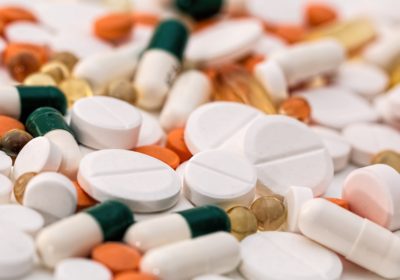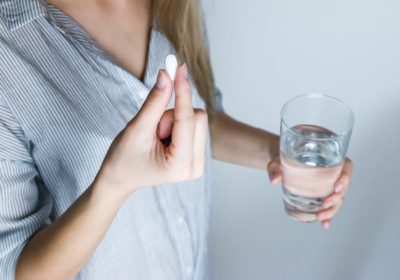What is the best time
to take probiotics?
Life is all about timing, isn’t it? The timing of when you take a probiotic supplement is no different. Probiotics are live bacteria strains that need to survive to help heal your gut.
If these good little bacteria can’t make it to the intestines, they may not be useful. Now you may be wondering – what is the best time to take probiotics to make the most significant impact on your health?
Here we cover when you should take probiotics, general benefits of probiotics, and the indirect impact probiotics may have on mental health.
Best Time to Take Probiotics
Getting probiotics from the food you consume in your diet is always the best way to pump up the good bacteria in your gut. Fermented foods like sauerkraut, kimchi, and kombucha are a great source of probiotics. Other dietary sources can come from dairy products like kefir.
When you can’t get enough probiotics from your diet, an alternative option is to consider adding a probiotic supplement to your daily routine.
Understanding the best time to take a probiotic supplement can change the level of health effects you experience due to how many bacteria survive the journey. So let’s help these tiny dudes flourish by learning the helpful timing tricks below.
With a Meal or 30 minutes Before (not after)
The acidity of the stomach can be a hostile environment that kills off even good bacteria like probiotics. A study conducted to help ease public confusion on when to take probiotics found that bacteria had a higher survival rate when taken with a meal or 30 minutes before a meal.
It was additionally beneficial to eat foods high in fat. Some examples of food with good fats include avocado, nuts, chia seeds, and fatty fish.
Any Time of Day is Okay
There is not strong research suggesting that one time of day is better to take probiotics than another time of day. What is most important is that you are taking probiotics according to when your next meal is.
It is also helpful to note that many other supplements, herbs, and medications have antibacterial properties. Be sure to take your probiotics at least 2 hours apart from other pills/herbs. No need to stress if the timing is not exactly right, as long as you are making an effort to care for your gut than you are doing a great job!
Continuous Consumption
The gut microbiome is almost entirely set by the age of three. Introducing probiotics does not necessarily change the microbiome mix in the gut. Although, it can change the metabolites that the gut produces – aka feeding your body with goodness increases healthy function.
Research shows that probiotics are detectable in tests during periods of consumption but not 1-4 weeks after stopping. This suggests that continuous use is needed to maintain desired outcomes.
Support with Prebiotics
Prebiotics are usually high-fiber foods that feed the good bacteria in your gut. If you want the probiotics you are adding to thrive then increasing prebiotic sources will help do the trick. Prebiotics are in foods such as whole grains, onions, asparagus, apples bananas, greens, barley, and legumes.

Benefits of Probiotics
Probiotics are living bacteria and yeast that help positively support the body. The most commonly used probiotics are Lactobacillus, Bifidobacterium, and Saccharomyces
Using probiotics to treat specific health conditions is still in the early phases of research. Different strains of bacteria may also have a better effect on treating particular conditions than other strains.
The FDA currently does not regulate probiotics in the USA, but interest in their health benefits continues to grow. The pile of scientific evidence continues to expand that suggestions probiotics positively affect intestinal health, immune response, reduction of cholesterol levels and even cancer prevention.
There is much stronger backing for gastrointestinal (GI) related issues than non-GI associated matters. A review of 100 studies shows some GI related illnesses that may benefit from probiotics include; travelers and antibiotic-associated diarrhea, Irritable Bowel Syndrome (IBS), and Inflammatory Bowel Disease (IBD).
| Improve gut health | Reduce Cholesterol |
| Heal GI Issues | May Treat Eczema |
| Treat Diarrhea Conditions | Indirectly Benefit Mental Health |
| Boost Immune System |
Probiotics Indirect Impact on Mental Health
There is undoubtedly a connection between the gut and the brain appropriately called the gut-brain axis. This communication channel sends information back and forth all day long.
Not to mention, the gut produces many mood-altering hormones like gamma-aminobutyric acid (GABA), dopamine and serotonin. The gut produces an estimated 90% of serotonin, which is a neurotransmitter that impacts anxiety and depression symptoms.
You may be familiar with stress or anxiety causing an upset stomach. What may not be as familiar to you is that irritation in the gut also may cause anxiety, depression, and stress.
“Psychobiotics”
The term psychobiotics was invented in 2013 to define probiotics that have an impact on psychiatric disorders. A few probiotic strains also labeled as psychobiotics are Bifidobacterium Longum, Bifidobacterium infantis, and Lactobacillus Plantarum.
Both the Bifidobacterium may reduce anxiety and depression, increase relaxation and reduce IBS symptoms. The Lactobacillus strain may help raise serotonin and dopamine while reducing anxiety.
Psychobiotics may help lower inflammation in the body and brain. Inflammation is contributed to negatively impacting depression and anxiety conditions. Lowing this inflammation in the gut may also help lower it in the brain – reducing additional stress on the body.



